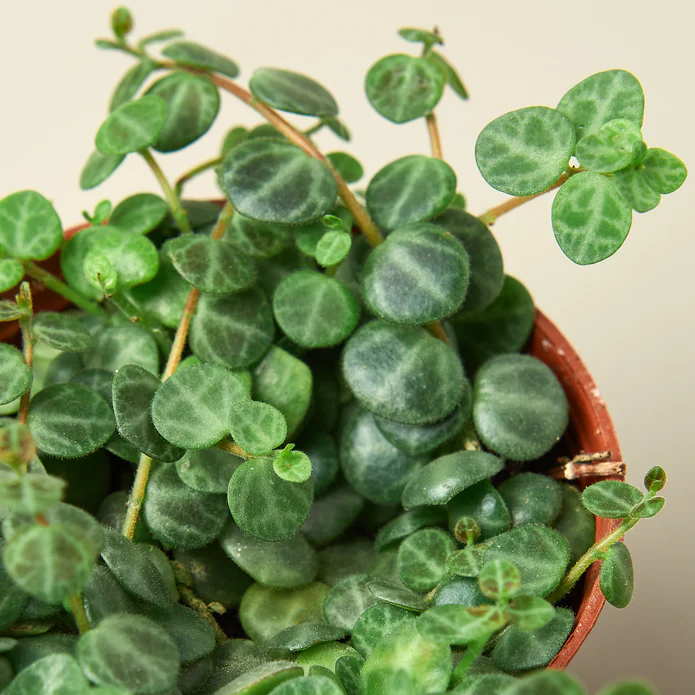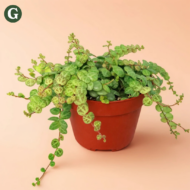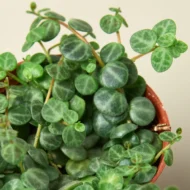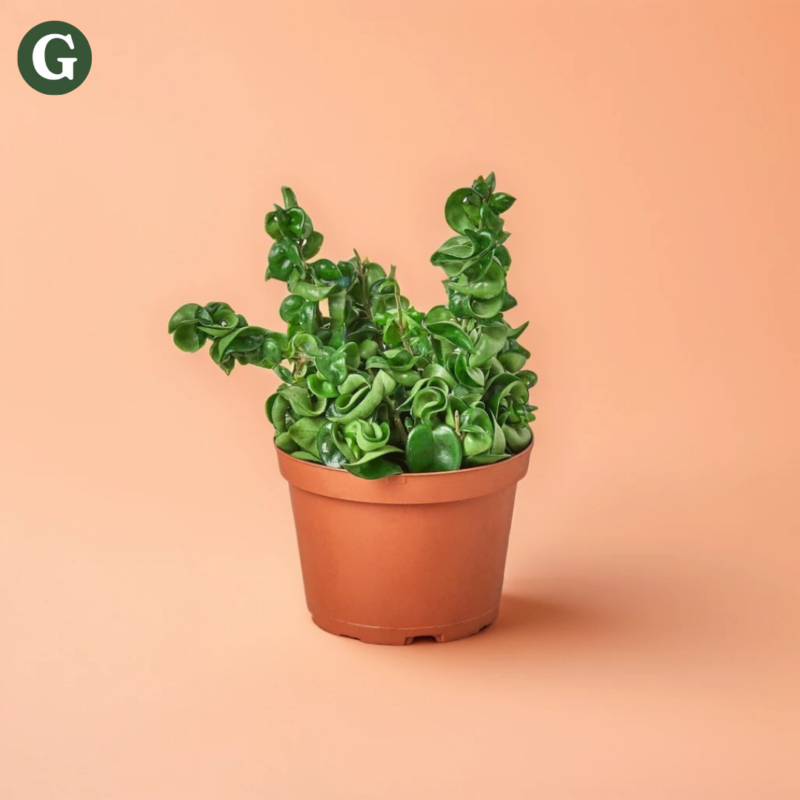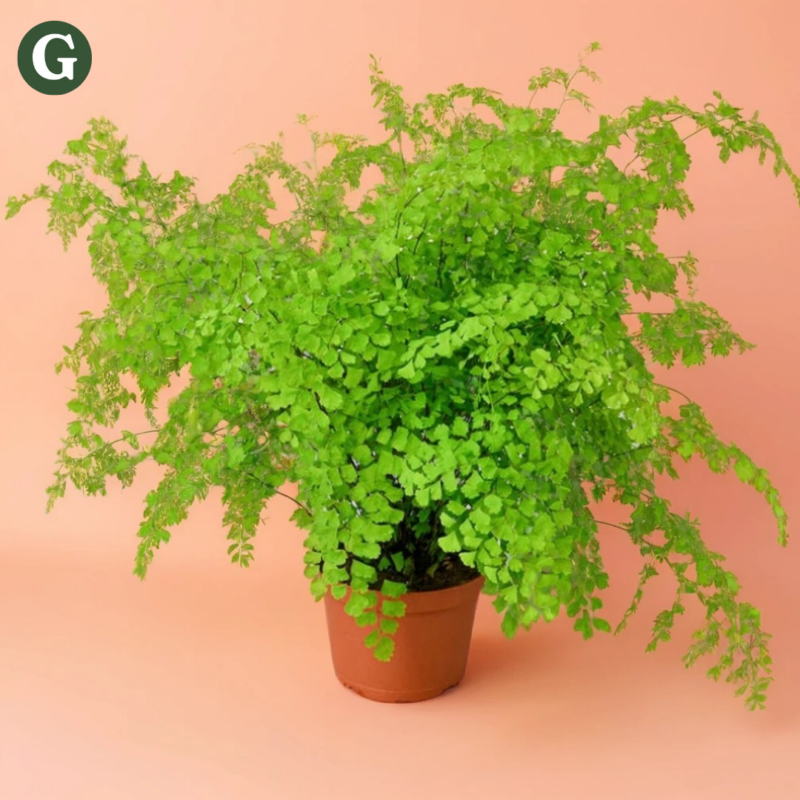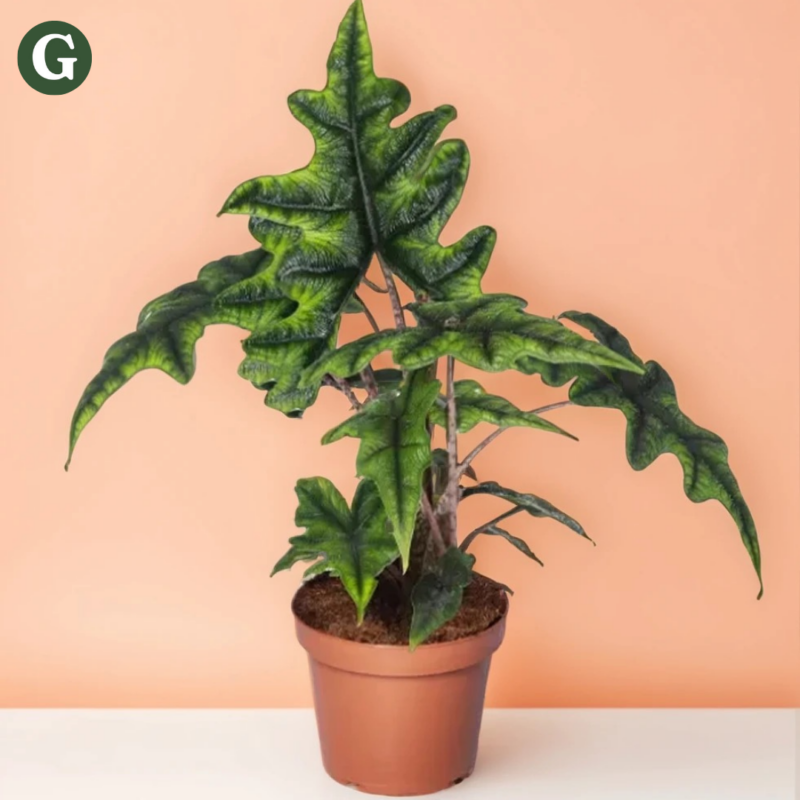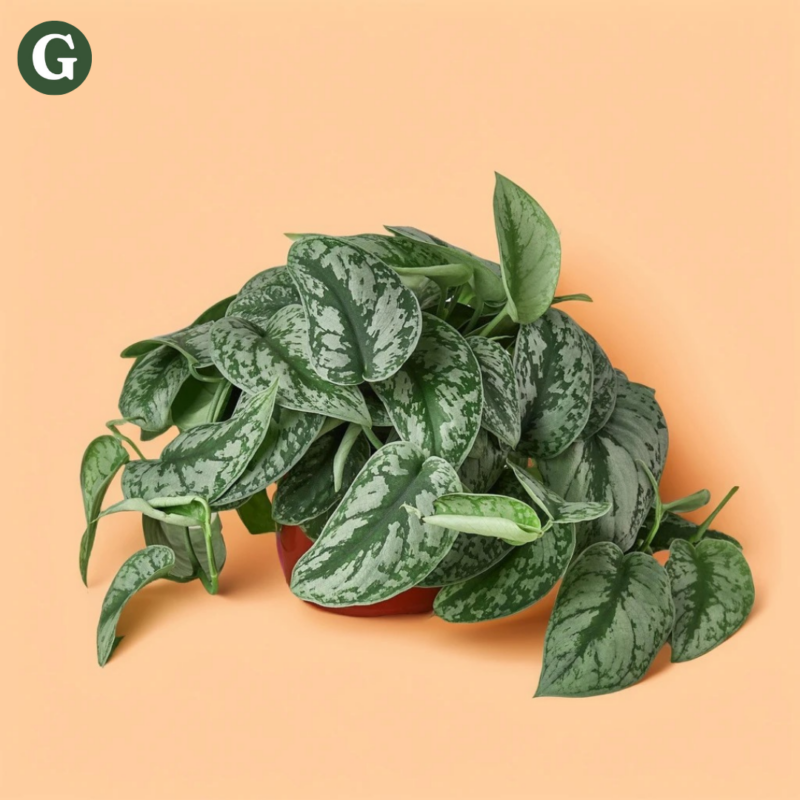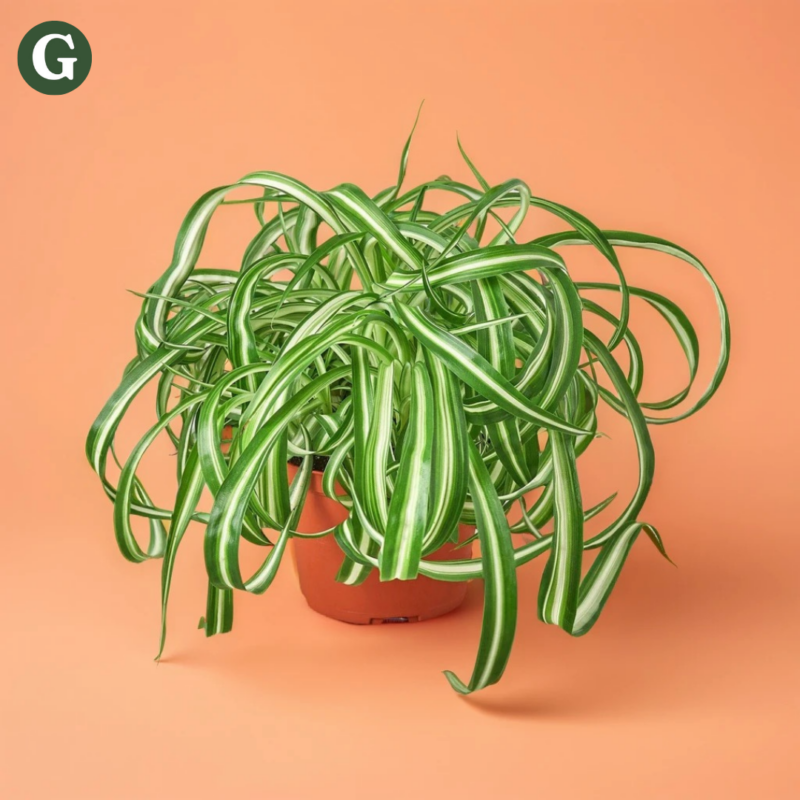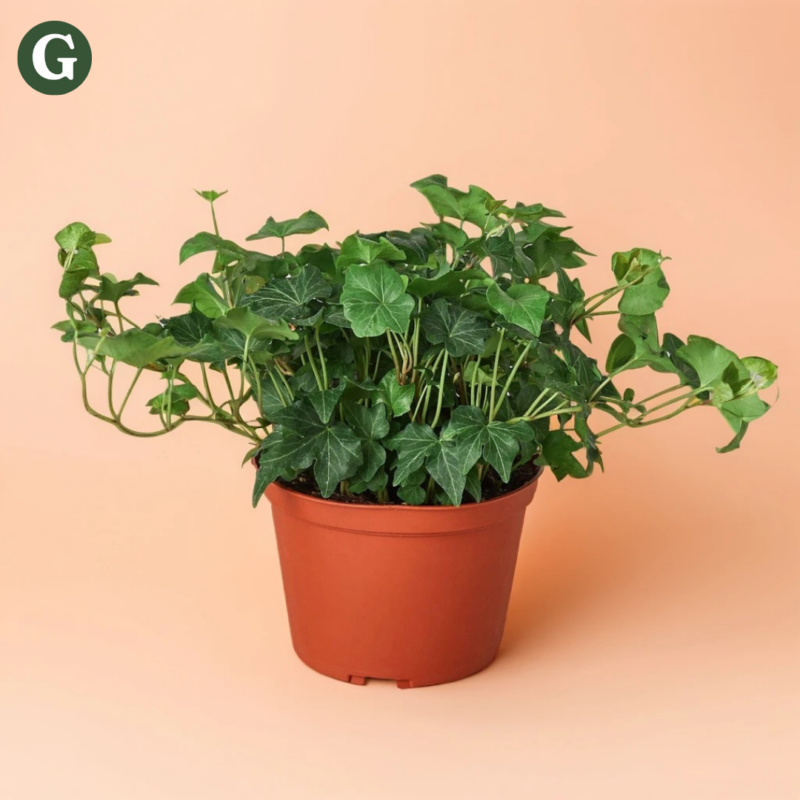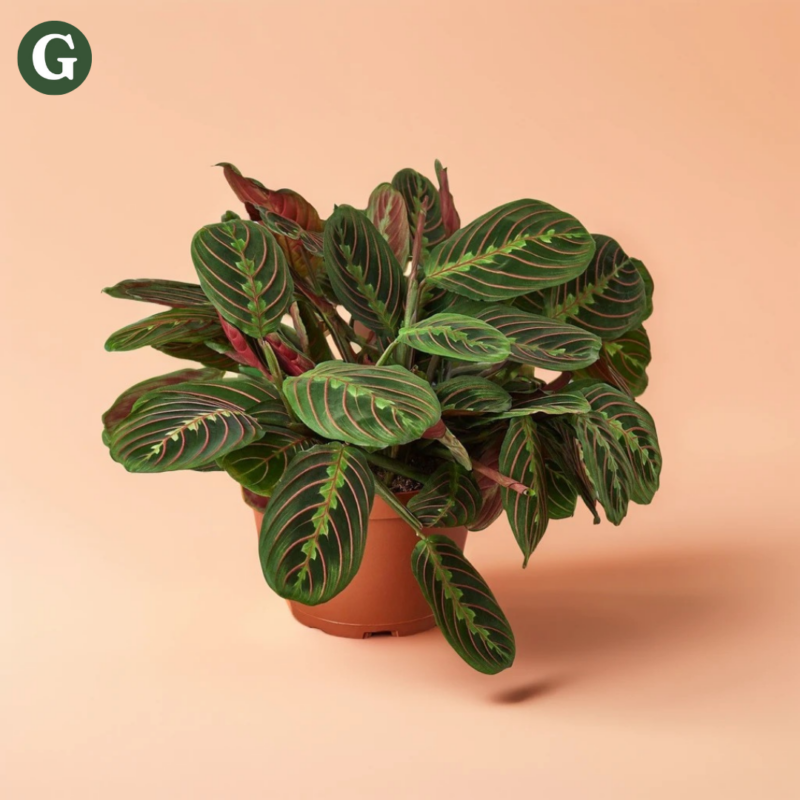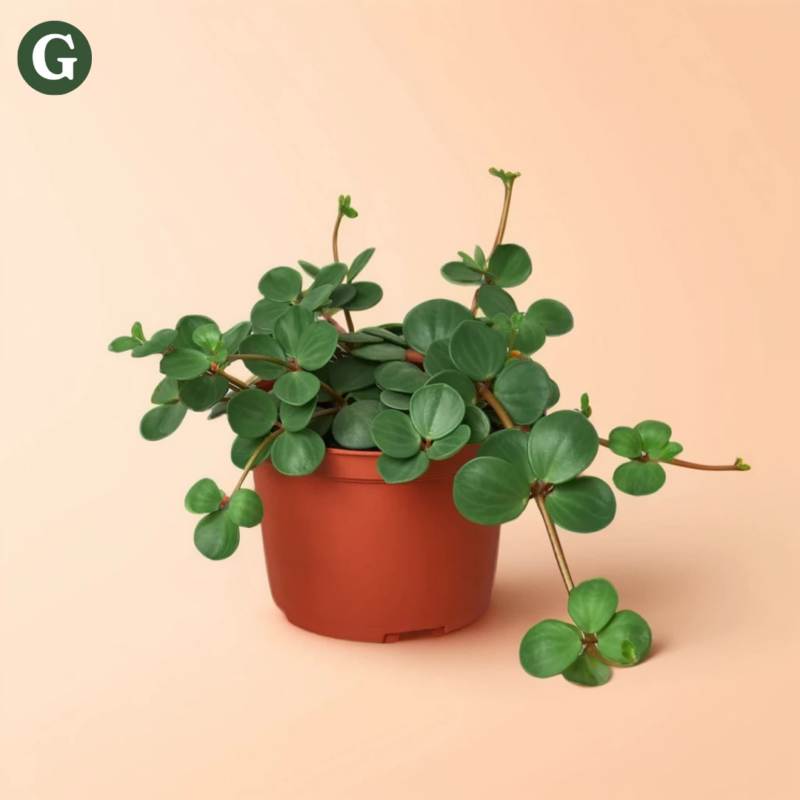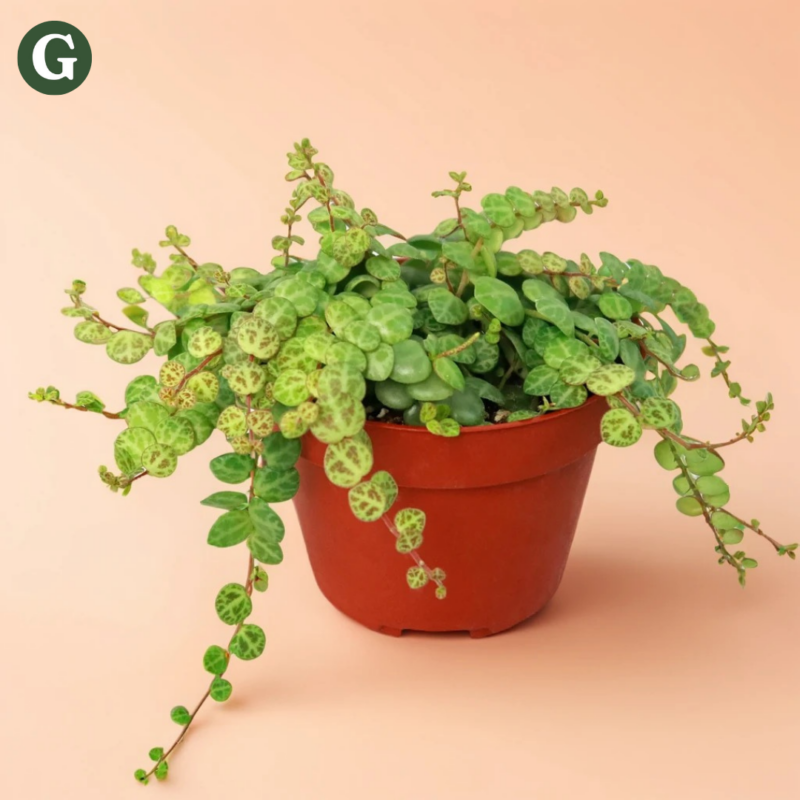Peperomia Prostrata ‘String of Turtles’
Botanical Name: Peperomia prostrata
Common Name(s): String of Turtles, Turtle Vine
Peperomia prostrata, commonly known as String of Turtles, is a charming and unique trailing plant known for its small, round leaves that resemble tiny turtle shells. The leaves have intricate, white veining over a green base, giving each one a patterned, almost mosaic-like appearance. Native to Brazilian rainforests, this slow-growing plant is perfect for hanging baskets or as a cascading tabletop accent, where its delicate vines can trail down.
String of Turtles prefers bright, indirect light to maintain its vibrant leaf pattern, though it can tolerate lower light levels with slower growth. It thrives in well-draining soil and is highly sensitive to overwatering, so it's essential to let the top inch of soil dry out completely between waterings. String of Turtles enjoys average indoor humidity but can benefit from higher humidity to mimic its natural environment.
Air Purifying Qualities: While not a major air purifier, String of Turtles contributes to better indoor air quality by absorbing carbon dioxide and releasing oxygen, adding a fresher feel to the space.
Note: Peperomia prostrata is non-toxic to pets, making it a safe choice for households with cats and dogs. However, it's always a good idea to monitor pets to prevent any accidental nibbling on the delicate vines.
Care Insights & Expert Tips
- Fertilize sparingly: Feed your Peperomia Prostrata with a diluted, balanced liquid fertilizer once or twice a year during the spring and summer seasons. Too much fertilizer can burn the roots.
- Repot carefully: Repot your Peperomia Prostrata only when it becomes root-bound. Use a well-draining potting mix.
- Avoid overwatering: Overwatering is the most common cause of death for peperomias. Allow the soil to dry out completely before watering again.
- Protect from cold drafts & pests: Peperomias are sensitive to cold drafts. Place them away from drafty windows and doors. Additionally, keep an eye out for common houseplant pests like mealybugs and spider mites. Treat infestations promptly with insecticidal soap or neem oil.

Visit our plant care library
Find essential tips to keep your plants thriving, vibrant, and healthy.

